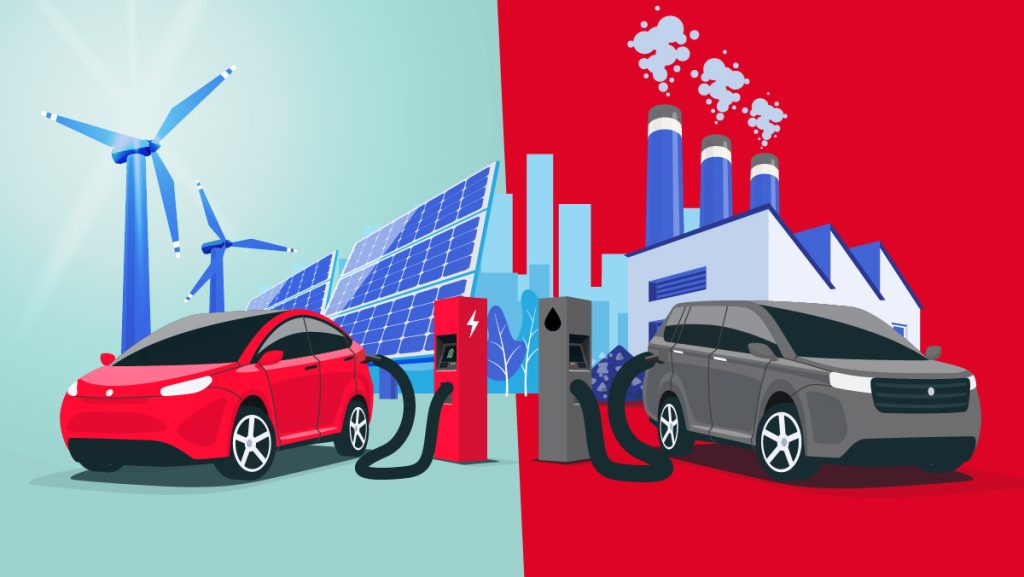
Many prefer the rumbling ‘vroom’ of a gasoline car to the soft hum of an electric vehicle, while others would rather just be satisfied in the knowledge that they are lessening their carbon footprint. Let’s look at the cold hard facts however, and compare electric cars vs gas cars
Electric Cars vs Gas Cars: Components
The amount of moving components is an important distinction between electric and gasoline-powered automobiles. While a gasoline-powered car contains hundreds of moving components, an electric vehicle just has one, the motor. Another significant distinction is that the electric car has fewer moving components. The electric car is more dependable and needs less routine maintenance. The maintenance needed for a gasoline-powered car ranges from routine oil changes, filter replacements, tune-ups, and exhaust system repairs to less frequent component replacements including water and fuel pumps, alternators, and so on.
Electric Cars vs Gas Cars: Maintenance
The expenses associated with maintaining an electric car are reduced since there are less maintenance requirements. The shaft, the only moving component of the electric motor, is extremely dependable and needs little to no maintenance. The controller and charger are electrical devices that require minimal to no maintenance because they have no moving components. Modern sealed lead acid batteries are maintenance free and utilized in electric cars nowadays. However, these batteries have a finite lifespan and will eventually need to be replaced. New batteries are being developed to increase the range of electric cars as well as the battery pack’s lifespan, perhaps eliminating the need to replace the battery pack throughout the course of the vehicle’s lifespan.
Electric Cars vs Gas Cars: Efficiency
In addition to being simpler and less expensive to repair than gasoline-powered vehicles, electric vehicles are also more cost-effective to run. The electric car will drive roughly 43 miles for $1 based on the efficiency of 3 miles/kwhr and the cost of power at 7 cents per kwhr. The gasoline-powered car will go roughly 18 miles based on the average gas mileage of 22 miles per gallon and the price of gasoline at $1.25 per gallon. As a result, an electric car may drive more than twice as far on a dollar’s worth of petrol.
Where Electric Falls Behind
There are still a number of difficulties for the owner of an electric car despite the fact that it will be less expensive to operate and maintain.
The primary issue is the restricted range offered by existing battery technology. The amount of driving distance possible utilizing the current batteries is between 50 and 150 miles. These ranges are being extended by new battery technologies, and prototypes of these batteries have shown ranges of up to 200 miles between recharging. Solar powered charging stations are being implemented in numerous places to decrease range anxiety towards electric vehicles
The lack of qualified service professionals to repair and maintain electric cars is another issue that faces their owners. A two-year associate degree program has been developed to train high school graduates to become proficient electric vehicle technicians, and training programs are being developed and made available to upgrade the conventional automotive technician with the skills needed to maintain an electric vehicle.
Infrastructure to recharge the batteries is also required. The most important component of the infrastructure for recharging already exists: electric power is accessible practically everywhere. To support the electric car, it is still necessary to guarantee that charging stations with the right sorts of service (i.e., maximum voltage and current) are placed in important areas. Plans must also be made.
Inside Telecom provides you with an extensive list of content covering all aspects of the tech industry. Keep an eye on our Technology sections to stay informed and up-to-date with our daily articles.